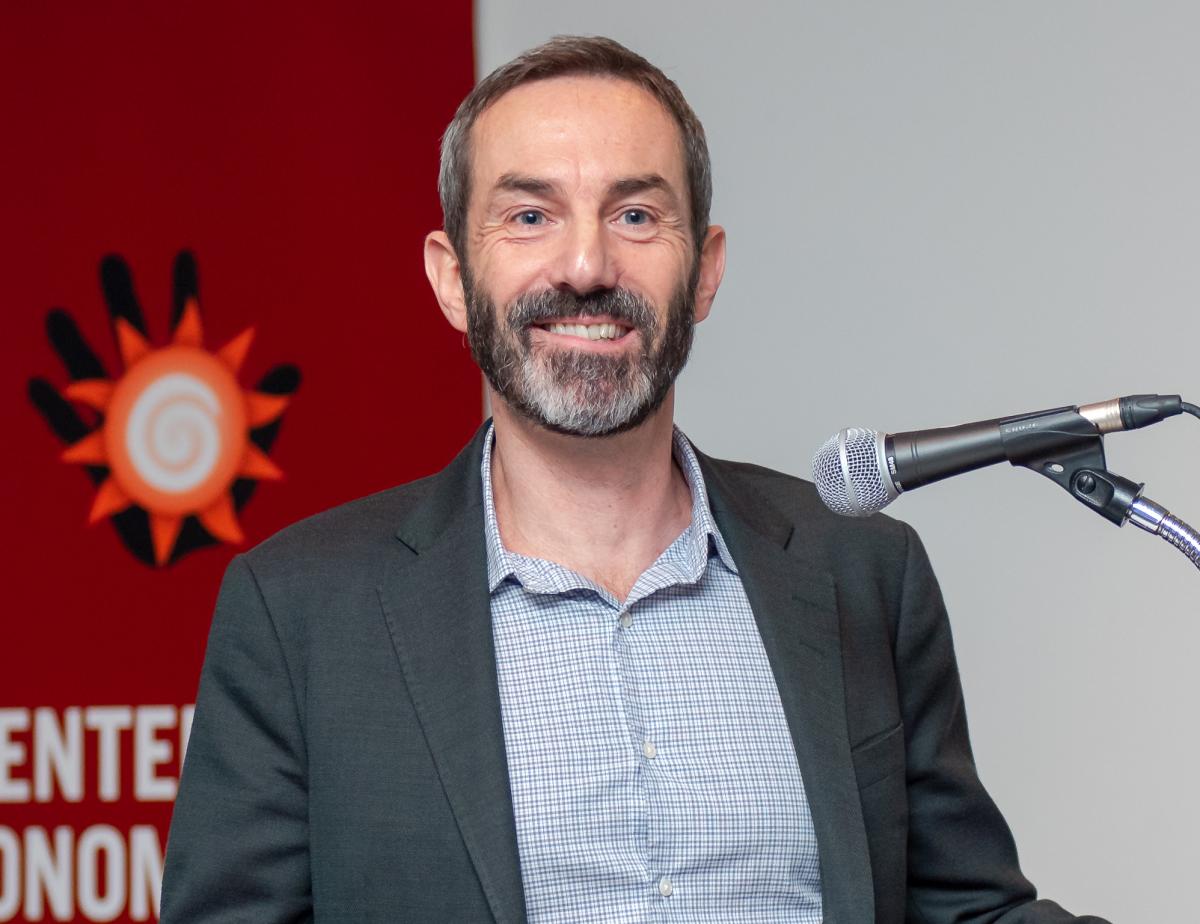An end of year message from Ignacio Saiz, Executive Director

2018 was a year of significant anniversaries. Earlier this month, the Universal Declaration of Human Rights (UDHR)—a visionary charter for human dignity which became the cornerstone of the modern international human rights system—turned 70. Importantly, the Declaration recognizes economic, social and cultural rights as entitlements “indispensable for dignity” with the same status as civil and political rights.
This year also marked the 25th anniversary of the Center for Economic and Social Rights, the first international NGO set up to promote the realization of these rights following their marginalization during the Cold War. Since 1993, we’ve been working to activate the neglected half of the UDHR agenda as a vital force for social and economic justice, carrying out cutting-edge research and advocacy on critical issues such as taxation and the exploitation of natural resources, and providing steadfast support to those defending economic and social rights worldwide.
These milestones fall at a troubling time for human rights. It is hard to celebrate the longevity of the UDHR—which opens by proclaiming that “all human beings are born equal in dignity and rights”—in a year in which the gap between rich and poor reached historic new heights. Projections this year estimate that the richest 1% is now on course to own as much wealth as two-thirds of the world’s population by 2030. From Brazil to the US, we have seen how extreme inequality breeds disaffection with democracy, encourages corporate capture and provides fertile ground for reactionary and authoritarian leadership that puts the full range of human rights at risk.
Bringing human rights to the struggle against inequality
At CESR we’ve been marking this year’s dual anniversary by redoubling our efforts to fight extreme inequality as one of the most pervasive threats to human rights. Throughout the year, we’ve been waging this struggle on three critical fronts: resisting austerity, promoting progressive tax policies and advancing sustainable development alternatives.
A decade on from the global financial crisis, more than two-thirds of the world’s countries are currently pursuing some form of austerity measures, including drastic cuts to social spending and minimum wage protections. We’ve led the way in assessing austerity’s human rights impacts—most recently with partners in South Africa, already the world’s most economically unequal country. We’ve helped bring about inspiring victories, such as the restoration of universal access to health care on human rights grounds in Spain. And we’ve called on powerful institutions such as the International Monetary Fund to promote fairer alternatives to austerity in line with their stated commitment to reducing economic and gender inequality.
CESR has been a leading human rights voice on the need for progressive taxation policies— nationally and globally—that reduce inequality and redistribute resources in ways that can realize rights for all. We’ve been challenging regressive tax reforms and proposals in countries such as Colombia and the United States, prompting critical international scrutiny of their likely impact on already rampant levels of social and economic inequality. And earlier this year we were honored to join the Steering Group of the Independent Commission for the Reform of International Corporate Taxation (ICRICT), a group of prominent global figures including Joseph Stiglitz, Thomas Picketty, Magdalena Sepúlveda and Jayati Ghosh, working to ensure that multinational corporations pay their fair share of tax and that global tax rules respect human rights and sustainable development.
Reducing inequalities within and between countries is one of the most groundbreaking goals of the 2030 Agenda for Sustainable Development. Yet three years since its adoption, the Agenda’s transformative ambitions are being betrayed by a business-as-usual approach to development. CESR has been helping to lead the most comprehensive civil society monitoring initiative, the annual Spotlight on Sustainable Development Report, which provides a grounded counter-narrative to the often rosy official assessments of progress, and points to the policy shifts needed, including steps to tackle escalating wealth concentration. In countries such as Egypt, CESR has been working with civil society groups to propose new metrics of development progress aligned with their priorities and with the country’s economic and social rights commitments.
Working beyond boundaries to build collective power
Twenty-five years of advocacy for economic and social rights have yielded two key lessons. One is that monitoring, claiming and enforcing these rights poses a distinct set of methodological and strategic challenges that the human rights movement will have to grapple with more deeply, if we are to make a bigger dent in the wall of impunity that still surrounds most areas of socioeconomic policy. This year, we’ve been taking stock of the methodological innovations we’ve sought to bring about in the field through the OPERA House project, eliciting views from the global community of practice on the tools and skill sets the 21st century human rights activist needs to hone in order to address the injustices of our neoliberal age.
A second learning, is that structural, cross-cutting problems such as extreme economic inequality, environmental degradation and institutionalized discrimination are so vast in scale, complex in nature and far-reaching in their implications for people and planet, that they cannot be tackled in isolation by one movement alone. For this reason, this year we began a new series of initiatives exploring how the human rights movement can work in closer synergy with other movements striving for economic and social justice. CESR’s Beyond Boundaries convening in Lima brought together environmental, land and labor rights activists, tax justice campaigners, feminist development economists, indigenous peoples’ rights defenders and others from the human rights community to assess how cross-movement collaboration can be fostered in order to scale up our collective response to the challenges of the current context.
As this landmark year draws to a close, we invite you to join us in reclaiming the holistic and egalitarian vision of the UDHR, and to work with us over the coming year to ensure 2019 becomes the tipping point in the global struggle against extreme inequality.
Related: